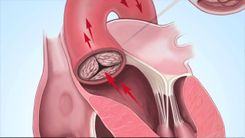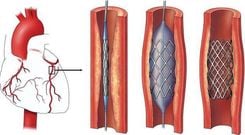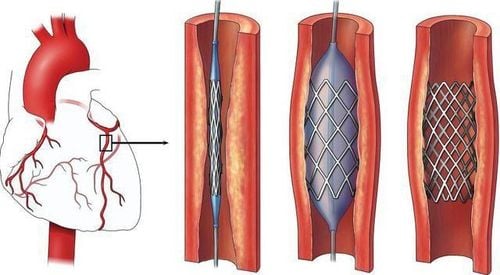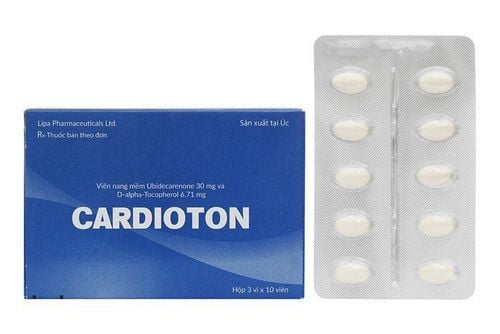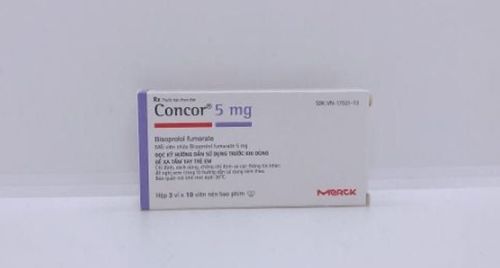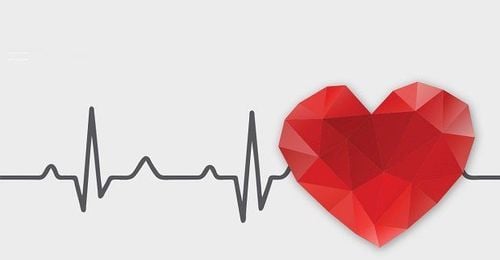This article is consulted by Master of Medicine, Doctor Nguyen Minh Son - Interventional Cardiologist - Department of Outpatient & Internal Medicine - Vinmec Nha Trang International General Hospital.
Vastarel (trimetazidine) is an antianginal agent used in the preventive treatment of stable angina. However, the drug only works best when used as prescribed, taken at the right time, and in the correct dosage. Here are some notes when using the drug in the treatment of coronary artery disease to maximize effectiveness and avoid side effects.
1. What are the effects of Vastarel (trimetazidine)?
Vastarel is a new-generation angina medication, effective for patients with ischemic heart disease. The mechanism of action of Vastarel helps the heart muscle switch from using energy from fat to using energy from glucose, helping the heart muscle consume less oxygen and energy, and preventing angina. From the mechanism of action, Vastarel is only highly effective for stable angina. The drug is not effective for people with acute myocardial infarction or unstable angina.

2. What to keep in mind when using Vastarel to treat coronary artery disease and ischemic heart disease?
Vastarel is not the first-line medication for treating angina caused by ischemic heart disease. It is used after vasodilators such as nitrates or can be combined with nitrates to increase the effectiveness of pain control while reducing side effects for this group.
Vastarel is only recommended for use within 3 months due to the drug's side effects. You should consult your doctor about the duration of use.
If you still feel chest pain or the pain increases while using Vastarel, you need to see a doctor at a medical facility immediately. The cause may be due to the drug not being effective or a sign of acute myocardial infarction.
Do not stop taking the medication on your own, as this can make the angina worse.
Therefore, you need to consult your doctor before stopping Vastarel.
Vastarel should be used with caution in certain individuals:
- Pregnant and breastfeeding women: Although there are not enough studies to determine the risks of using this drug during pregnancy or breastfeeding, always ask your doctor for advice before using the drug to weigh the benefits and risks.
- Vastarel can increase tremors in people with Parkinson's disease and increase seizures in people with epilepsy. Therefore, the use of the drug in these patients must be especially cautious.
- Special attention is needed when used in patients over 75 years old or patients with moderate kidney failure, and Vastarel should not be used in people with severe kidney failure.

There are currently two main types of Vastarel on the market: Vastarel 20mg and Vastarel 35mg. The 20mg tablet is usually an immediate-release medication, while the 35mg is a modified-release (MR) medication. The effects of these two forms are similar. However, the duration of action, dosage, and usage of each drug will be different, so patients should not buy the drug themselves or switch between these two dosage forms without guidance from a doctor.
Patients should use the drug with meals or immediately after meals to increase treatment effectiveness and reduce the drug's side effects on the digestive tract. Do not chew the medication; swallow the whole tablet, especially for the modified-release form.
Dosage: With Vastarel 20mg, the drug is usually taken 3 times a day. The 35mg dosage form is taken 2 times a day, 12 hours apart.
If you forget to take Vastarel, take it as soon as you remember. If it is too close to the time for the next dose, you should skip that dose and take the next dose as usual according to the old schedule.
Possible side effects:
- The most common side effects are dizziness, headache, digestive disorders (abdominal pain, diarrhea, indigestion, vomiting), rash, itching, and hives.
- Less commonly, a small number of patients using the drug may experience rapid heartbeat, palpitations, sleep disorders, tremors, muscle stiffness, difficulty speaking, etc. If these signs appear, you should inform your doctor for timely treatment.

- Hypotension: Please be aware and cautious when using this medication with other blood pressure-lowering drugs to avoid episodes of excessive hypotension.
- Nervous System Disorders: May cause dizziness, headache, and drowsiness.
Therefore, driving or operating machinery should be limited if you experience these unusual symptoms.
To arrange an appointment, please call … or make your reservation directly HERE. You may also download the MyVinmec app to schedule appointments faster and manage your reservations more conveniently.

